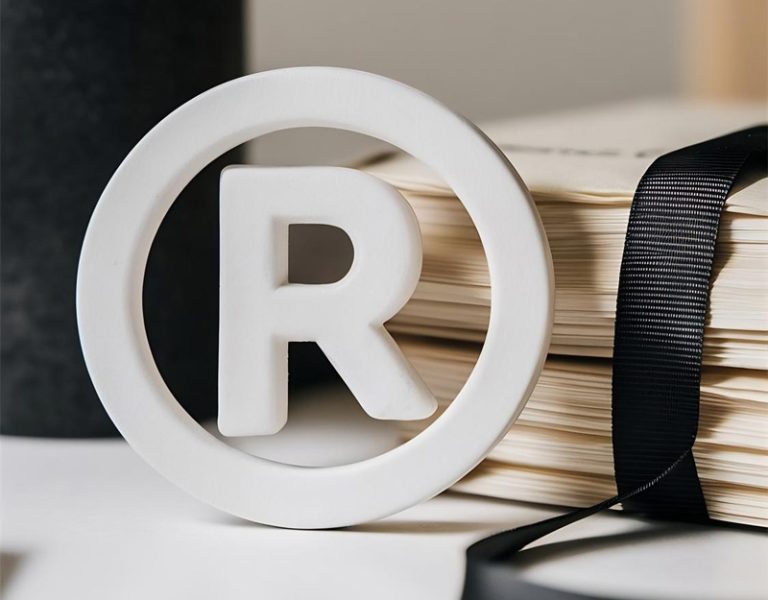Are you searching for the best way to organize your company’s work environment and enhance legal compliance? The Companies Regulations are the essential factor in strengthening legal compliance, as they play a significant role in promoting discipline and improving operational efficiency within any institution. In this guide, we help you understand more about the nature of the Companies’ Internal Regulations, their importance in organizing work, and the steps for preparing the Companies’ Internal Regulations, including their relation to enhancing legal compliance, in addition to other important details that assist you in drafting a distinguished and comprehensive set of internal rules.
What Are the Companies’ Internal Regulations?
The Companies Regulations refer to a specific document drafted by the company to clarify the rules and policies governing the conduct of employees and administrators, as well as defining the rights and duties of each individual. The Companies Regulations lay out all internal details, whether working hours, attendance and departure policies, prohibited behaviors, legal procedures, safety standards within the institution, among other details that explain the internal activities of the company.
The Importance of Companies Regulations in Work Organization:-
The Companies Regulations play a vital and fundamental role in promoting discipline and structuring work mechanisms, and their importance can be summarized as follows:
- The existence of specific regulations for the company helps prevent legal errors or exposure to particular problems, as they unify internal policies and supportive laws.
- The Companies Regulations protect the company from being subject to legal issues or violations that may harm its reputation.
- They serve as a reliable and essential reference for resolving any administrative or financial problem, as they also contain disciplinary penalties and laws that strengthen internal discipline and regulate workflow.
- They enhance the productivity of the company or institution while also reducing internal conflicts among employees or administrators.
- They safeguard all rights and duties for both employees and the company alike, which fosters stronger belonging to the institution and motivates staff to perform better.
Steps for Preparing and Drafting the Companies Regulations Professionally:-
To be able to draft reliable Companies’ Internal Regulations, some key steps must be followed, including:
Studying the company model:
Initially, there must be a model provided by the legislative body or the relevant ministry, into which appropriate provisions are incorporated according to an approved document.
Identifying the company’s basic information:
This includes the name of the company or institution, its commercial activity, address, organizational structure, the nature of employees and their roles, along with reliable communication channels.
Including employee-related provisions:
It is essential that the Companies Regulations contain all procedures linked to employees, such as work nature, promotions, contracts, and required conditions.
Clarifying work policies:
These must include working hours, leaves, official attendance and departure times, and the measures to be taken.
Setting out rights and duties:
All fundamental rights and obligations towards the institution must be stipulated, in addition to behavioral rules to be observed and prohibited actions imposed by the company.
Legal review:
It is necessary to review all the provisions in the Companies Regulations to ensure no conflict exists with statutory or regulatory frameworks.
Approval of the regulations:
The final and most important step is obtaining approval from the Ministry of Human Resources, or its equivalent in each jurisdiction, to ensure the regulations are documented and binding.
The Role of Companies Regulations in Achieving Legal Compliance and Protecting the Company :-
The Companies Regulations greatly support achieving legal compliance in any institution. They help protect it by establishing clear rules that foster discipline and increase efficiency, which in turn prevents internal issues or exposure to specific legal violations. The following table highlights how the Companies Regulations contribute to legal compliance and protection of the company:
| Mechanisms of Achieving Legal Compliance | Protecting the Company from Risks |
| Clarify all authorities and obligations of each person to ensure tasks are carried out in accordance with official regulations.Ensure the company complies with all legal changes, while also protecting employees from risks associated with decisions or wrongful acts.Facilitate recourse to courts in case of disputes or problems, thus preserving the company’s reputation and strengthening internal stability. | Identify disciplinary actions or legal procedures applicable in case of violations, thereby promoting transparency and greater discipline while reducing internal disputes.Safeguard the company against legal or regulatory infractions, thereby enhancing safety and reducing potential rights violations.Strengthen the company’s resilience and capacity to handle external oversight. |
How Do Companies Regulations Contribute to Governance and Transparency?
The Companies Regulations promote governance and transparency through organizing the internal relationships between management and employees, supported by specific rules and policies laid down by the company. They establish monitoring and compliance frameworks, thereby encouraging employees to remain disciplined and perform their duties effectively. This occurs through:
- Defining the company’s internal framework, including its core rules and provisions.
- Enabling corporate governance through company-set policies, which assists in complying with management instructions, protecting rights and duties, and disseminating important information.
- Imposing all financial and administrative rules while providing vital information to stakeholders or entrepreneurs about the nature of the company.
- Enhancing equality between administrators and employees in terms of rights and duties, since everyone follows the same set of rules and laws,
The Relationship Between Legal Compliance and Company Success:-
The relationship between legal compliance and long-term corporate success is highly interconnected. Legal compliance contributes significantly to building strong foundations for any business and supporting its sustainability to the greatest extent possible. Moreover, it guarantees the continuation of its activities. Legal compliance is not limited to adopting Companies’ Internal Regulations, but constitutes a fully integrated strategic framework that supports the company and strengthens its market reputation among competitors.
How Legal Compliance Affects Business Sustainability?
Legal compliance, reinforced by the Companies’ Internal Regulations, supports business sustainability through:
- Creating a more organized and safer work environment, boosting productivity and reducing risks that might degrade company performance.
- Reducing internal disputes over rules or procedures, as they are all aligned with statutory requirements, making any breach a significant violation.
- Increasing both domestic and international investment by bolstering the company’s reputation and portraying it as ethical, professional, and systematically regulated.
- Supporting innovation and continuous improvement through a system that upholds all rights and duties of each individual working within the institution.
Conclusion
The Companies Regulations carry immense importance in promoting legal compliance, which helps reinforce internal discipline and improve the company’s efficiency. To effectively draft legally binding Companies’ Regulations that fully achieve their intended objectives, contact us at Sada Law Firm. We provide the best legal consultations and assist you with implementing internal regulations and any legal services you may require.
Frequently Asked Questions
Can the Companies Regulations be amended after issuance?
Yes, they can be amended according to business needs or legal changes, but such amendments must be approved by the competent authority within the company and duly communicated to all employees.
Are all companies required to prepare Companies’ Internal Regulations?
In most jurisdictions, companies with more than a minimum number of employees are required to establish them. However, even smaller companies are advised to draft them to ensure clarity in policies.
What is the difference between the Companies Regulations and labor laws?
The Companies Regulations manage company-specific details such as discipline and conduct, whereas labor laws constitute the overarching national framework governing rights and obligations of workers and employers.
How do the Companies Regulations affect corporate culture?
They play a crucial role in embedding corporate culture by defining acceptable values and conduct, while also fostering a positive and well-organized work environment.
Should the Companies Regulations be announced to all employees?
Yes. They must be clearly and repeatedly communicated to ensure every employee is aware of their contents and fully understands their rights and obligations, thereby enhancing compliance and discipline.






